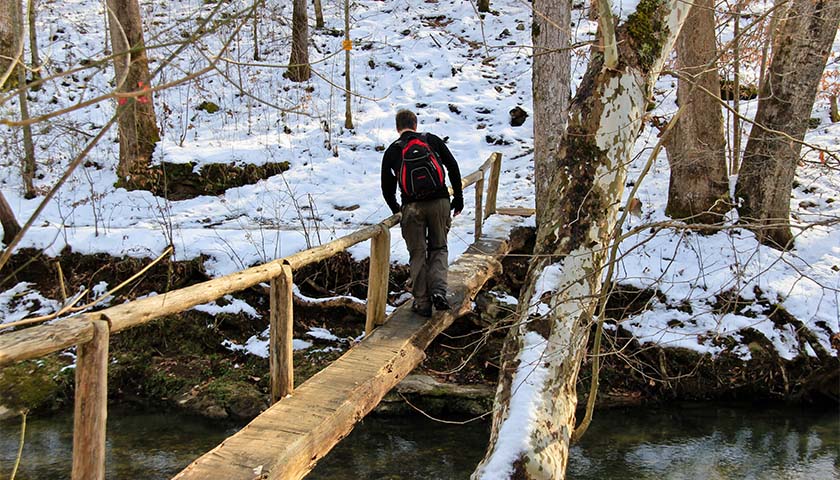A Virginia-based wildlife conservation non-profit announced recently that it will give the Bear Hollow Mountain Wildlife Management Area (WMA) over 1,100 acres of land. The area, known as the Corum tract, will connect “two sections of the existing WMA that were previously divided by the Corum property, improving continuity of state-owned land and expanding protected habitat for wildlife and recreation.”
According to the statement, The Conservation Fund purchased the land in March 2021 with the intention to wait until the Bear Hollow Mountain WMA had the funds to purchase the land from them. Officially, the land was given to the Bear Hollow Mountain WMA for permanent ownership on December 20.
“Connectivity of protected landscapes like this one are essential for forest health, habitats, and climate resiliency,” said Ralph Knoll, the conservation fund’s Tennessee state director. “We’re thrilled to see this acquisition of Corum complete, as it builds off of decades of conservation work that we’re achieving across Tennessee in partnership with Tennessee Wildlife Resource Agency, Open Space Institute, The Nature Conservancy in Tennessee, and Tennessee’s Congressional delegation.”
The Corum property is “mostly forested land that is highly ranked for terrestrial habitats and Karst attributes—very unique rocky landscapes,” that also includes suitable habitat for eight bat species that are considered “Greatest Conservation Need,” which include three federally listed (endangered or threatened) species.
The land includes federally listed plant species, such as Price’s Potato Bean and Moorefield’s Leather-flower.
The statement said the funding came from support from Open Space Institute (OSI), and donations through The Nature Conservancy of Tennessee from the Riverview Foundation, the WestRock Foundation, and “a private estate gift.”
“OSI is proud to have supported this astounding conservation success for Bear Hollow Mountain WMA, and for the people of Tennessee,” said Joel Houser, OSI’s southeast field coordinator. “This land will remain viable habitat for biodiversity, even as the climate changes. We salute The Conservation Fund, The Nature Conservancy, and the Tennessee Wildlife Resources Agency, for their tireless efforts on behalf of Tennessee’s natural places.”
Terry Cook, the nature conservancy in Tennessee’s state director said the land will also provide for people and nature as well, including “multi-use public recreation opportunities, protected wildlife habitats, and clean air and water, to name just a few.”
The Bear Hollow Mountain Wildlife Management Area is located about an hour and a half west of Chattanooga, and covers more than 17,000 of land.
– – –
Morgan Nicole Veysey is a reporter for The Tennessee Star and The Star News Network. Follow her on Twitter. Email tips to [email protected].
Photo “Walls of Jericho” by Michael Hicks. CC BY-ND 2.0.








